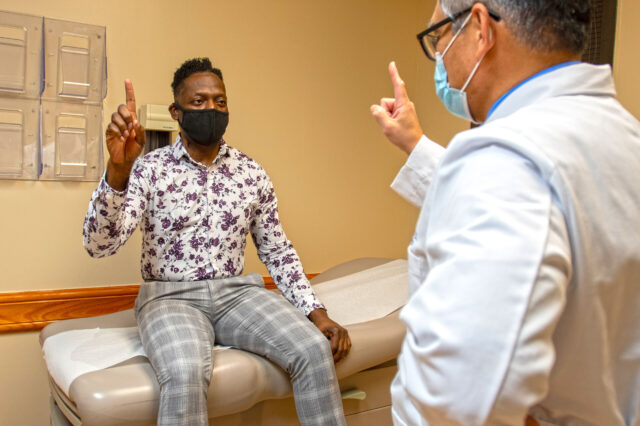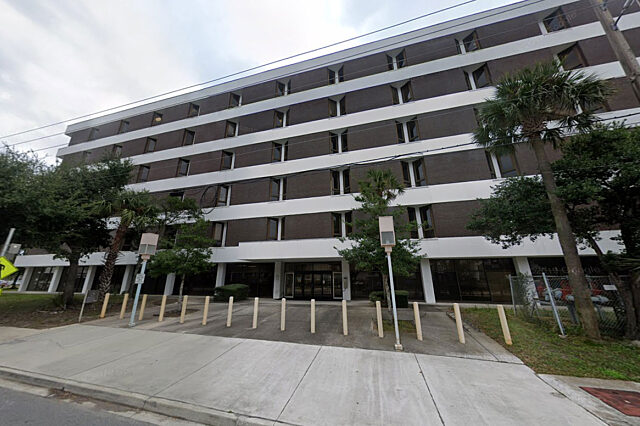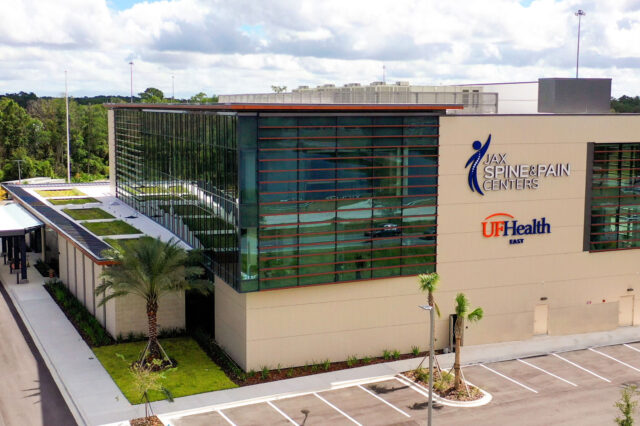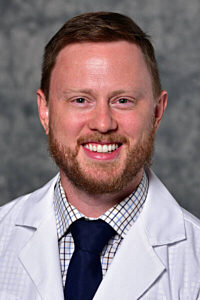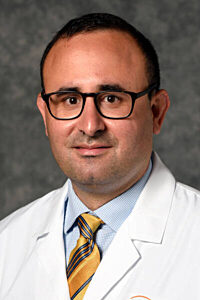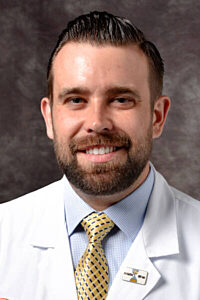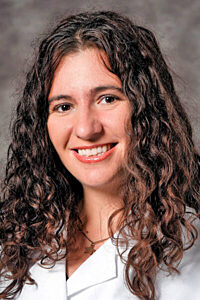
The dedicated team of neurologists at UF Health Neurology in Jacksonville offer treatments for a broad range of brain and nerve disorders. In addition to their expertise, these physicians collaborate with a multidisciplinary team within the UF Health Neuroscience Institute — Jacksonville.
Our patients benefit from the scope of knowledge and shared resources, as well as new research-based treatments our teams are developing.
These experts offer some of the region's premier medical programs, including:
- DNV Healthcare-certified Comprehensive Stroke Program
- NAEC-accredited Comprehensive Epilepsy Program
- National MS Society-certified Center for Comprehensive Multiple Sclerosis Care
- ALS Association-certified Treatment Center of Excellence
- Peripheral Neuropathy Association-designated Neuropathy Center
Neurologic care programs
UF Health Neurology in Jacksonville offers dedicated programs for:
- Alzheimer's disease and dementia
- Epilepsy
- Multiple sclerosis
- Neuromuscular disease
- Parkinson's disease and movement disorders
- Stroke
In addition to general neurology services, UF Health offers fellowship-trained specialists in the fields of:
It’s like a miracle. I’m walking normal. I was so impressed with the care from the hospital and staff. I’ll never go anyplace else.
Mary Lou's story More patient stories
Our locations
-
UF Health Jacksonville Leon L. Haley Jr., M.D., Brain Wellness Program
Phone number:
(904) 244-3289Address:
1833 Boulevard
Professional Office Building, 3rd Floor
Jacksonville, FL 32206
Our neurologists
-
Vascular Neurologist

-
Ramon E Bautista, MD, MBANeurologist, Clinical Neurophysiologist, Epilepsy Physician

-
Neurologist, Neurocritical Care Physician

-
Ryan K Crooks, MDNeurologist, Vascular Neurologist

-
Neurologist, Vascular Neurologist

-
Neurologist, Clinical Neurophysiologist, Epilepsy Physician

Latest in Neurology

Calming the Tremors
Deep brain stimulation improves quality of life by reducing tremors.

